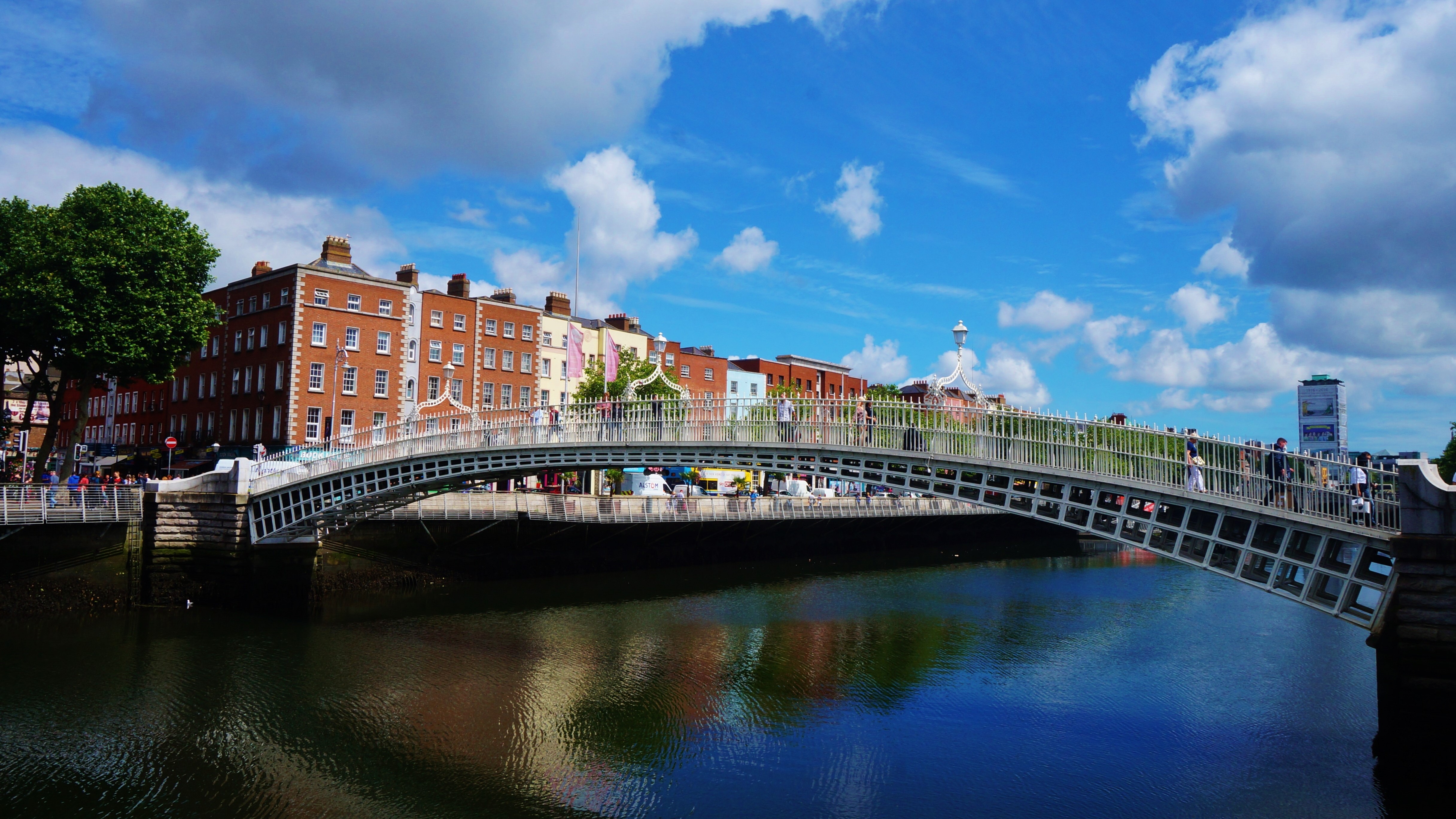The tech scene in Dublin: what you need to know
How Ireland’s capital is quickly becoming the world's next tech hub

Sign up for breaking news, reviews, opinion, top tech deals, and more.
You are now subscribed
Your newsletter sign-up was successful
When you think of tech hubs, cities such as San Francisco, London, Tel Aviv and Beijing come to mind but what about Dublin? Ireland has been doing a great deal recently to attract the top companies and the best talent with the aim of becoming a tech hub itself. Add the UK’s decision to leave the EU to the mix and you have some of the biggest companies from around the world considering moving their headquarters from the UK to Ireland to avoid getting caught up in Brexit.
To better understand Dublin’s journey to become a tech hub, TechRadar Pro spoke with Patricia DuChene, General Manager EMEA at the work management and collaboration company Wrike.
Why is Dublin a hub for tech companies?
We have an incredibly eclectic and multicultural community that gives Dublin an exciting energy. Dublin boasts the EMEA headquarters for the likes of Google, Facebook, Slack, LinkedIn, Dropbox, and Zendesk, as well as plenty of budding startups. Companies call Dublin their home for plenty of reasons - and not just the favourable tax environment. There are innovation schemes and a supportive business ecosystem, of course, but one of the greatest advantages to Dublin is the broad mix of talent that has collected from all over the EU and beyond.
How and why is there such a strong pool of talent in Ireland - particularly Dublin?
You have to go back 30 years, when the first technology firms, predominantly hardware, opened up a lot of opportunities for work in the burgeoning tech scene. The government welcomed the new businesses and the Irish community was eager for the new jobs in new industries. This was the start of a cycle of diversity the has continually fed itself and spawned even greater diversity and opportunities over the last three decades. Business has flourished in this country as a result.
Just last year, Ireland was ranked as the sixth-most competitive country in the world for doing business by the Institute for Management Development (IMD). It would be impossible for a country the size of Ireland to reach this milestone without the right people. The Irish government really understands this, and works hard to nurture talent at a grassroots level.

Is Ireland doing anything out of the ordinary to bring great talent in from overseas?
Ireland has done a tremendous job building a business friendly ecosystem that welcomes new companies into the country and supports existing companies on their growth paths. This in turn opens up new opportunities for the citizens of Ireland and those who are looking to move to the country. With the ease of relocation within EU countries, the IDA’s assistance programs for visas and work permits, and the general welcoming nature of the Irish people, it’s no wonder Ireland has built a strong multicultural talent pool.
Does Dublin’s size also help?
I believe it does. Dublin is a small city, so everything is condensed and really just a 10 minute walk away. I love to joke with my colleagues in San Jose, California that while they need to allocate an hour or more to drive to a meeting, I can leave my office, grab a cup of coffee and arrive onsite at a partners office in less than 15 minutes. The size also contributes to the “small town” vibe of Dublin. It’s common to see someone you know while walking down the street and everyone is willing to lend a hand.

Does Dublin’s growth as a tech hub create any problems?
Ireland, and particularly Dublin, has done an amazing job attracting companies from around the globe, but we are now tasked with accommodating this growing population of talent. It’s a great problem to have, but a tricky one to maneuver. There are some creative solutions circulating, and ultimately while the tech community is one of the most vocal about needing solutions for their employees, they are also a great source of ideas. I certainly hope we can expect some private and public sector collaboration in the future towards a sustainable and scalable Dublin.
How will companies need to adapt?
First, we will continue to see an increase in remote work options and flexible work schedules. This will reduce city congestion and make living outside the city center more feasible for workers. Interest in remote and flexible work is not a fad, or even a trend. It’s about people trying to take back control over their own lives, and companies need to support it if they want to retain top talent. It is about making work fit into life, rather than trying to fit life into work.
Second, I think we will see an increase in satellite offices just outside the city and the rise of the micro-office. Companies will open two or three smaller locations throughout the city or country, rather than one large office space. By taking advantage of the smaller offices that are still available in the city, companies will be able to find the space they need, become more appealing to the talent that is dispersed throughout the city, and still reap the benefits of calling Ireland their home.
Finally, for those that really do require a larger office space or facilities, we will see companies branching out into less populated areas of the Dublin suburbs or other fast-growing cities throughout the country, such as Cork, Galway, and Limerick.
The upshot of all this is that businesses in Dublin are starting to move towards a more digital workplace. I think 2019 will be the year we finally throw out the antiquated 9-to-5. And many companies are using work management platforms, like Wrike, to help them do so.
Seamless collaboration is essential to ensuring the success of a project and imperative when teams are working in different locations. Having real-time visibility over workflow is also very important if businesses want to offer a flexible working hours policy, as it means the latest status is accessible, even if the person working on it has finished for the day.
Businesses shouldn’t be intimidated by digital transformation; it will help teams become more efficient, effective, and productive. A digital workplace enables employees to work where they want, when they want, and how they want.

Do you think Brexit will have an effect on growth?
Ireland’s economy is booming and I predict there will be an even greater influx of international companies looking to move their EMEA headquarters here in the wake of Brexit.
What are Wrike’s plans in the region?
We have had incredible success since opening our first Dublin office three years ago. It gives me great pride to say that EMEA is the company’s fastest growing region for Wrike and there is still tremendous opportunity here in terms of talent and market share. We’re just getting started!
Managing digital work and increasing productivity while maintaining work-life balance are top priorities in this region and the Wrike platform makes it possible to achieve that balance through automation and a suite of work management tools, features, and integrations.

What would your advice be for any company or person looking to move to Dublin?
Do it! If you’re looking to advance your career or grow your company in an English-speaking region in EMEA, there’s no reason not to come to Ireland, especially Dublin. You’ll be joining some of the biggest names in technology and some of the brightest minds of the future. I haven’t regretted moving since the day I arrived and I am proud to call Dublin home now.
Patricia DuChene, General Manager of EMEA at Wrike
- Interested in tech hubs? Find out why Norway wants to be the world's next big tech hub
Sign up to the TechRadar Pro newsletter to get all the top news, opinion, features and guidance your business needs to succeed!
